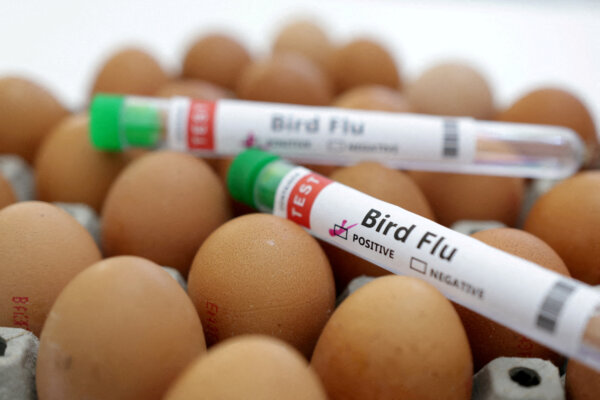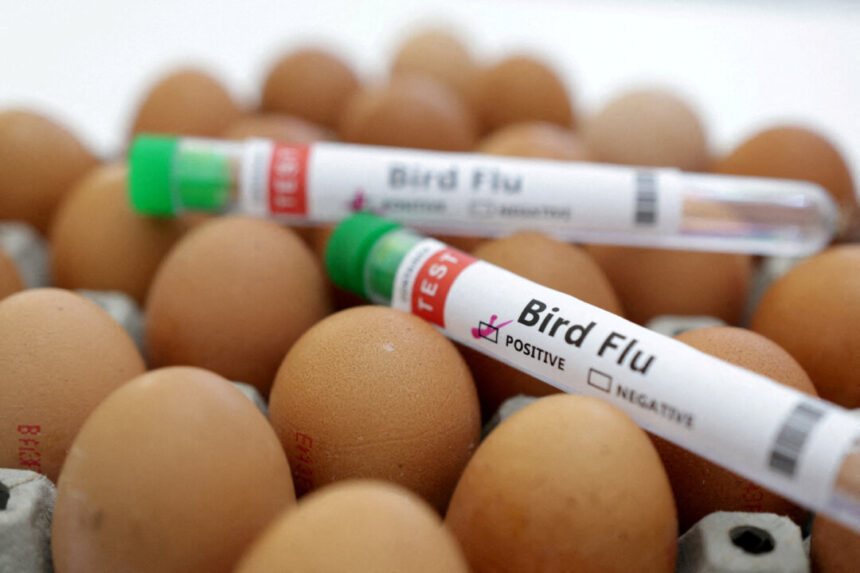
The first human case of H5N1 avian flu was reported in Victoria, but there is no evidence of transmission within the state.
The Victorian Health Department is encouraging people to take the seasonal flu vaccine after the first Australian case of bird flu was discovered in the state.
A human case of avian influenza, known as H5N1 infection, was detected in a child in India who fell ill in March 2024.
Authorities found the virus in extra testing of positive flu samples as part of Victoria’s “surveillance system” for the disease. However, contact tracing has not detected any additional cases of bird flu connected to the case.
Victoria’s chief health officer Clare Looker, who issued the health advisory, said there is no evidence of transmission in Victoria, and the chance of more human cases is very low.
The health advisory noted that there are many strains of bird influenza, and the majority do not infect humans.
The child who contracted avian influenza had a severe infection, but has now made a full recovery from the virus.
Further, the health department noted that significant outbreaks of bird flu are being reported overseas, but the United States strain is different from that detected in Victoria.
“The United States of America is currently experiencing outbreaks of HPAI (H5N1) in dairy cows, with one recent human case in a dairy worker. Whilst the Victorian case is HPAI (H5N1), it is not the same as the strains that have caused these outbreaks in the United States of America,” the department said.
In Michigan in the U.S., the bird flu has been detected in a dairy worker, the second case found in less than two months.
Flu Vaccine Suggested to Reduce Risk of New Pandemic
Victorian health authorities have recommended the uptake of the seasonal flu vaccine to reduce the risk of the emergence of new mutated viruses.
“The seasonal flu vaccine doesn’t protect against avian influenza. However, it can help prevent the mixing of highly pathogenic avian influenza with seasonal influenza, which can lead to new mutated viruses that could spread rapidly,” the Victorian government said.
“This highlights the importance of seasonal influenza vaccination, particularly for poultry workers and those travelling to areas with outbreaks, to reduce the risk of new human pandemic viruses emerging.”
The health department emphasised that the jab can be taken by everyone aged older than six months to prevent influenza and its complications.
“Influenza vaccination is recommended for all people aged ≥6 months. Influenza vaccination can be given on the same day as COVID-19 vaccines and other vaccines,” the department said.
Avian Flu Found on Farm in Victoria
Meanwhile, thousands of birds in Victoria will also be euthanized after the H7N2, a highly pathogenic strain of avian flu, was detected at a poultry farm near Meredith in regional Victoria.
The farm has been put into quarantine as Agriculture Victoria staff continue to investigate the incident.
In a statement on May 23, Agriculture Victoria confirmed that H7N3 has caused a number of poultry deaths at an egg farm.
“Contact tracing is also underway to determine the source and spread of the infection.”
Meanwhile, the Federal government has activated its “emergency animal disease” plans after the bird flu was detected at the farm.
The department revealed testing has confirmed this outbreak is the H7 strain, which is separate from that which is causing concern around the globe.
The government said it has been preparing for a potential avian flu outbreak for quite some time, including holding two recent national workshops to work on response coordination activity for the bird flu.
The meetings include representatives from federal, state, and territory agencies to prepare for a national response tying together the animal, human health, and environmental sectors.
Agriculture Fisheries and Forestry Minister Murray Watt expressed relief that the new strain is separate from that impacting the United States and Antarctica, however, Australia is taking it “extremely seriously.”
“Australia has effective, nationally-agreed response and cost-sharing arrangements in place to address animal disease incursions and outbreaks, and this has swung into action to support Victoria,” he said.
“Australia is well practiced in responding to disease incidents in poultry and has successfully responded to eight outbreaks of HPAI in poultry since 1976. In all those cases, we were able to eradicate the disease successfully and rapidly with minimal spread between farms.”
Mr. Watt expressed sympathy for the impacted farmer and the community.
“It is a timely reminder to all poultry and bird owners to follow best biosecurity practices and report any suspicious deaths immediately to the national hotline,” he said.
Australian Chief Veterinary Officer Beth Cookson said she is working closely with the Victorian chief veterinary officer to provide all the support needed to control infection rapidly.
She said the risk to human health remains low and consumers can have the confidence that eggs and poultry products are safe to consume.
“I have been impressed by the speed at which the Victorian government has acted to respond. They are on-the-ground and actively managing this issue,” she said.





